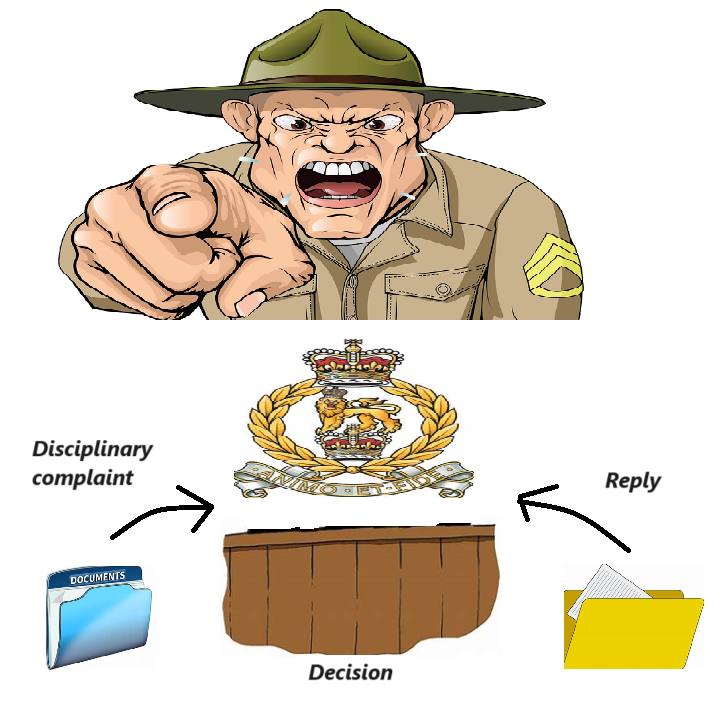R v Army Board of the Defence Council, ex p Anderson, [1992] QB 169, [1991] 3 All ER 375, EWHC
Citation:R v Army Board of the Defence Council, ex p Anderson, [1992] QB 169, [1991] 3 All ER 375, EWHC
Link to case on WorldLII (reference).
Rule of thumb: Do all cases (particularly disciplinary hearings) require a full oral Hearing of evidence with multiple witnesses having to be cross-examined? For minor disciplinary matters, no, there does not always have to be an oral Hearing, and there does not even have to be cross-examination – it can be adjudicated by correspondence & based on witness statements. For minor legal matters, a short oral Hearing a couple of witnesses may be sufficient procedure in order to deal with them fairly.
Judgment:
the basics of this case were than an officer alleged that he had been racially discriminated against. The evidence was considered without an open, full and public oral hearing. The Court in this case held where there are complicated facts or a major dispute over facts then an oral hearing must be held – where the facts were not in doubt there did not have to be an oral hearing. This was deemed to violate the right to natural justice, ‘The hearing does not necessarily have to be an oral hearing in all cases. There is ample authority that decision-making bodies other than courts and bodies whose procedures are laid down by statute, are masters of their own procedure. Provided that they achieve the degree of fairness appropriate to their task it is for them to decide how they will proceed and there is no rule that fairness always requires an oral hearing: see Local Government Board v. Arlidge [1915] A.C. 120, 132-133; Reg. v. Race Relations Board, Ex parte Selvarajan [1975] 1 W.L.R. 1686, 1694B-D and Reg. v. Immigration Appeal Tribunal, Ex parte Jones (Ross) [1988] 1 W.L.R. 477, 481B-G. Whether an oral hearing is necessary will depend upon the subject matter and circumstances of the particular case and upon the nature of the decision to be made. It will also depend upon whether there are substantial issues of fact which cannot be satisfactorily resolved on the available written evidence. This does not mean that whenever there is a conflict of evidence in the statements taken, an oral hearing must be held to resolve it. Sometimes such a conflict can be resolved merely by the inherent unlikelihood of one version or the other. Sometimes the conflict is not central to the issue for determination and would not justify an oral hearing. Even when such a hearing is necessary, it may only require one or two witnesses to be called and cross-examined.’ Taylor LJ

Warning: This is not professional legal advice. This is not professional legal education advice. Please obtain professional guidance before embarking on any legal course of action. This is just an interpretation of a Judgment by persons of legal insight & varying levels of legal specialism, experience & expertise. Please read the Judgment yourself and form your own interpretation of it with professional assistance.

